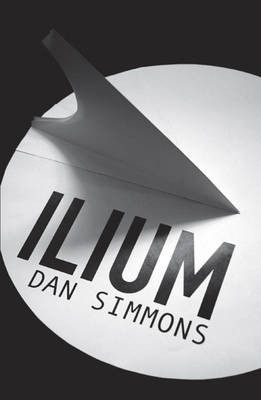

Alive again (or perhaps never dead, who can say?) to serve the strange interests of-brace yourselves-Greek Gods.

In the classical vein, Ilium opens with an acknowledgement of its narrator, a “scholic” named Hockenberry, “poor dead Thomas Hockenberry, Hockenbush to his friends.” Yes, dead. Stop now.įor those of you still reading, you have my sympathy. If you want the most out of Ilium, I refer you to the end of my review, above.

Some of these surprises can’t be avoided in any significant review. Much of the charm of this novel comes from the thigh-slapping bark of a laugh it provokes when it reveals certain surprises. Readers who proceed past this point, beware. Is it space opera? Is it philosophical SF? Is it philosophical space opera? I’ll put the end of my review here: fans of the SF romp, of the kind of story that knows no bounds, of characters who shrink at no impossibility must read Ilium. Who else would dare stick his fingers so deep into The Iliad you won’t ever think of that classic in quite the same way again? Who else would appropriate Shakespeare’s The Tempest so adroitly that the strangeness of doing so passes in but a page or two, leaving the reader with a deep sense of rightness about the symbols being put into play? Dan Simmons, who first thumped the world of SF upside the head with Hyperion more than ten years ago (has it been so long?) is banging away again with Ilium. This is a book impossible to not like, and hard to not love.


 0 kommentar(er)
0 kommentar(er)
